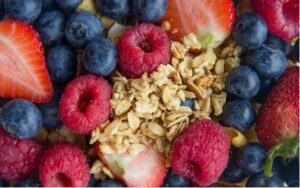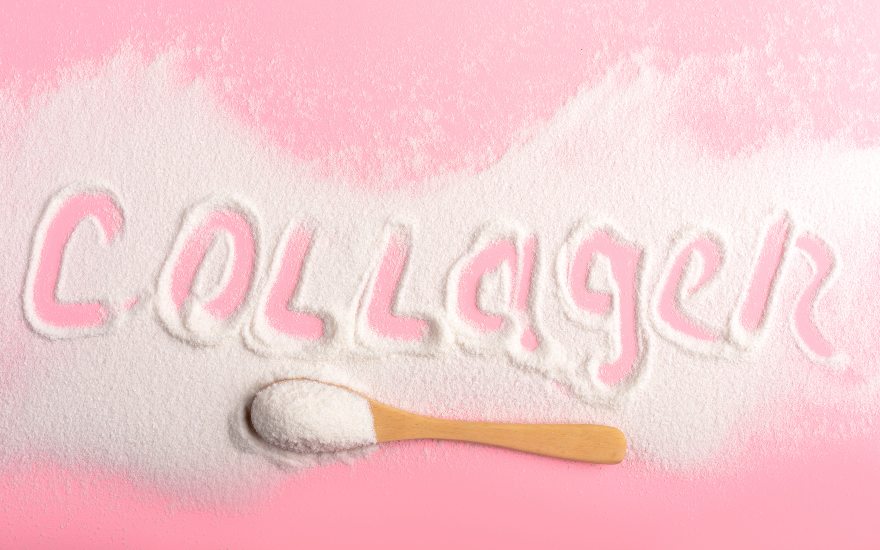Information and details on bioflavonoids and their intake
Flavonoids, or bioflavonoids, are the key active ingredients of many microcirculation supplements and antioxidant products.
These particular compounds of plant origin are isolated in order to exploit their beneficial properties for the human organism.
In the course of this article, we will see what natural flavonoids are, where to find them and what the advantages (and possible disadvantages) of their supplementation are.
What are flavonoids and where are they found?
Flavonoids are a family of natural compounds found in the plant world and widely used in the pharmaceutical and cosmetic fields.
Specifically, they belong to a class of plant secondary metabolites with a polyphenolic structure and can be subdivided into six main subtypes: flavones, chalcones, isoflavonoids, flavanones, anthoxanthins and anthocyanins.
In nature, these compounds are found in fruits, vegetables and some of their derivatives. Here are the main foods rich in flavonoids:
- tea
- onions
- cabbage
- grapes (and red wine)
- berries (e.g. blackberries, raspberries, blueberries, currants, wild strawberries)
- strawberries
- apples
- peaches
- citrus fruit
- lettuce
- broccoli
- tomatoes
- cocoa (and its derivatives, such as dark chocolate)
- camomile
- parsley
- peppermint
- red peppers
- coffee
- soya

Although they are mainly known for their antioxidant (anti-free radical) action, bioflavonoids have many other properties and are vital for the well-being of the human body.
One of the main flavonoids is the diosmin, in which the best supplements for microcirculation are rich. To learn more, read the in-depth article “Diosmin: what is it, what is it used for and what are its benefits?”
All the benefits of flavonoids and their intake
Flavonoids have antioxidant, anti-inflammatory, anticarcinogenic and antimutagenic properties (i.e. they prevent genetic mutation of cells and all the risks related to this alteration).
Some of them, in particular diosmin and hesperidin, also have a protective action on microcirculation, while others, such as hesperidin, have an anti-allergic action in addition to their other properties.
As these compounds are very interesting for human well-being, they have been isolated and subjected to . Research has shown that regular intake of flavonoids helps to :
- counteract the action of free radicals, unstable molecules or atoms which, in order to achieve stability, steal electrons from other molecules, causing their oxidation
- reduce the risk of heart attack and stroke (it seems that the bioflavonoids found in coffee, tea and soya are particularly effective in this respect)
- counteract the proliferation of cancer cells
- manage hypertension (high blood pressure)
- reduce the risk of tumours and neurodegenerative disorders
- limit symptoms of seasonal allergies
- improve microcirculation function, i.e. blood circulation in blood vessels smaller than 200 microns, which include arterioles, metarterioles, capillaries and venules
- support the normal function of the immune system
- limit the onset of chronic diseases, including cardiovascular diseases and type 1 diabetes (however, further studies are needed to prove the full efficacy of flavonoids against these diseases)
Generally, flavonoid supplements are prescribed for the wellbeing of the microcirculation and lymphatic circulation – in case of swollen legs, haemorrhoid problems and other disorders related to poor microcirculation -, as natural antioxidants and as a support against seasonal ailments and chronic diseases.

However, as with any nutrient, one should not overdo the intake of these metabolites: excessive consumption can cause effects opposite to those desired.
Read also: Diosmin against cellulite: here’s how the flavonoid may help reduce the problem
Contraindications and side effects
Although research on the side effects of flavonoids is very limited, it appears that excessive intake of these compounds has potentially negative effects.
At very high doses, bioflavonoids can inhibit certain enzymes essential for hormone metabolism and act as pro-oxidants (i.e. promote the generation of free radicals).
Particular care must also be taken during pregnancy, as these natural compounds cross the placenta with great ease.
Therefore, despite the fact that they are derived from plant substances, flavonoids supplements should always be taken under medical advice and supervision and after having carried out appropriate tests (a rule that applies to all food supplements).
Sources:
Panche AN, Diwan AD, Chandra SR. Flavonoids: an overview. J Nutr Sci. 2016 Dec 29;5:e47. doi: 10.1017/jns.2016.41. PMID: 28620474; PMCID: PMC5465813.
Skibola CF, Smith MT. Potential health impacts of excessive flavonoid intake. Free Radic Biol Med. 2000 Aug;29(3-4):375-83. doi: 10.1016/s0891-5849(00)00304-x. PMID: 11035267.
Serafini M, Peluso I, Raguzzini A. Flavonoids as anti-inflammatory agents. Proc Nutr Soc. 2010 Aug;69(3):273-8. doi: 10.1017/S002966511000162X. Epub 2010 Jun 23. PMID: 20569521.
Bai L, Li X, He L, Zheng Y, Lu H, Li J, Zhong L, Tong R, Jiang Z, Shi J, Li J. Antidiabetic Potential of Flavonoids from Traditional Chinese Medicine: A Review. Am J Chin Med. 2019;47(5):933-957. doi: 10.1142/S0192415X19500496. Epub 2019 Jun 27. PMID: 31248265.
Main image: Immagine di pikisuperstar on Freepik


